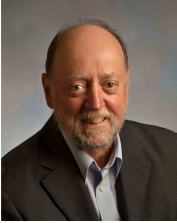
Prof. Jack Dongarra
University Distinguished Professor, Department of Electrical Engineering & Computer Science, University of Tennessee
Distinguished Research Staff, Oak Ridge National Laboratory
About the speaker
Jack Dongarra holds an appointment at the University of Tennessee, Oak Ridge National Laboratory, and the University of Manchester. He specializes in numerical algorithms in linear algebra, parallel computing, use of advanced-computer architectures, programming methodology, and tools for parallel computers. He was awarded the IEEE Sid Fernbach Award in 2004 and in 2008 he was the recipient of the first IEEE Medal of Excellence in Scalable Computing; in 2010 he was the first recipient of the SIAM Special Interest Group on Supercomputing’s award for Career Achievement. He is a Fellow of the AAAS, ACM, IEEE, and SIAM and a member of the National Academy of Engineering.
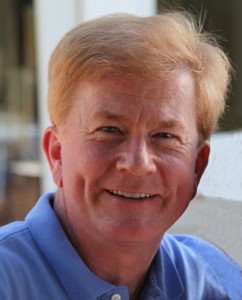
Dr. John Gustafson
Chief Technology Officer, Ceranovo Inc.
About the speaker
Dr. John Gustafson is an applied physicist and mathematician best known as a disruptive thought leader in High Performance Computing. He introduced cluster computing in 1985 and first demonstrated scalable massively parallel performance on real applications in 1988, for which he won the inaugural Gordon Bell Award. ‘Gustafson’s Law’ is taught in computer science courses everywhere. He was Director of the Extreme Research Lab at Intel, where he led their exascale computing program and other energy-efficient computing research. At Sun Microsystems, he led a $50 million supercomputer project centered on breaking the “memory wall”. He is the recipient of the IEEE Computer Society’s Golden Core Award. An honors graduate of Caltech and Iowa State University, he has held a number of CTO and CEO positions at publicly held and startup companies, and most recently was Chief Product Architect at AMD, before accepting the CTO role at Ceranovo Inc. in November 2013.
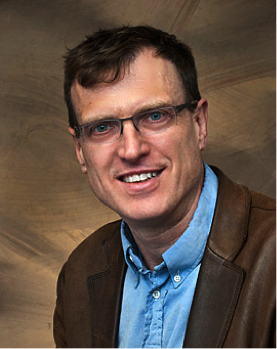
Prof. Robert J. Harrison
Professor, Institute for Advanced Computational Science, Stony Brook University
Director, Computational Sciences Center, Brookhaven National Laboratory
About the speaker
Professor Robert Harrison is a distinguished expert in high-performance computing and is the Endowed Chair and Director of the $20M-endowed Institute for Advanced Computational Science at Stony Brook University. Through a joint appointment with Brookhaven National Laboratory (BNL), Professor Harrison has also been named Director of the Computational Science Center at BNL. Dr. Harrison comes to Stony Brook from the University of Tennessee and Oak Ridge National Laboratory, where he was Director of the Joint Institute of Computational Science, Professor of Chemistry and Corporate Fellow. He has a prolific career in high-performance computing with over one hundred publications on the subject, as well as extensive service on national advisory committees.
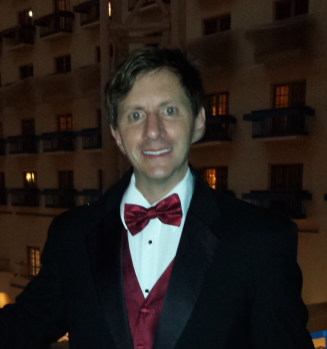
Prof. Scott Klasky
Computer Science Department, University of Tennessee at Knoxville & Georgia Tech University
Group Leader, Scientific Data, Computer Science & Mathematics, Oak Ridge National Laboratory
About the speaker
Scott A. Klasky is a distinguished scientist and the group leader for Scientific Data in the Computer Science and Mathematics Division at the Oak Ridge National Laboratory. He holds an appointment at the University of Tennessee, Georgia Tech University, and North Carolina State University. He obtained his Ph.D. in Physics from the University of Texas at Austin (1994), and has previously worked at the University of Texas at Austin, Syracuse University, and the Princeton Plasma Physics Laboratory. Dr. Klasky is a world expert in scientific computing and scientific data management, co-authoring over 190 papers. He is also the team leader of the Adaptable I/O System (ADIOS) project, which won an R&D 100 Award in 2013.
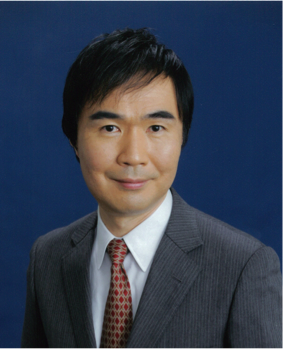
Prof. Dr. Satoshi Matsuoka
Professor, Global Scientific Information & Computing Center, Tokyo Institute of Technology
About the speaker
Satoshi Matsuoka has been a Full Professor at the Global Scientific Information and Computing Center (GSIC) of Tokyo Institute of Technology since 2001. He received his Ph.D from the University of Tokyo in 1993. He is the leader of the TSUBAME series of supercomputers, including TSUBAME2.0 which became the 4th fastest in the world on the Top500 in Nov. 2010, and the recent TSUBAME-KFC becoming #1 in the world for both Green500 and Green Graph 500 in Nov. 2013. He is also currently leading several major supercomputing research projects, such as the MEXT Green Supercomputing, JSPS Billion-Scale Supercomputer Resilience, as well as the JST-CREST Extreme Big Data. He has written over 500 articles according to Google Scholar, and chaired many ACM/IEEE conferences, including Technical Papers at SC’09, Community at SC’11, and overall Program at SC’13. He is a fellow of the ACM and European ISC, and has won many awards, including the JSPS Prize from the Japan Society for Promotion of Science in 2006, awarded by his Highness Prince Akishino, the ACM Gordon Bell Prize for 2011, and the Commendation for Science and Technology by the Minister of Education, Culture, Sports, Science and Technology in 2012.
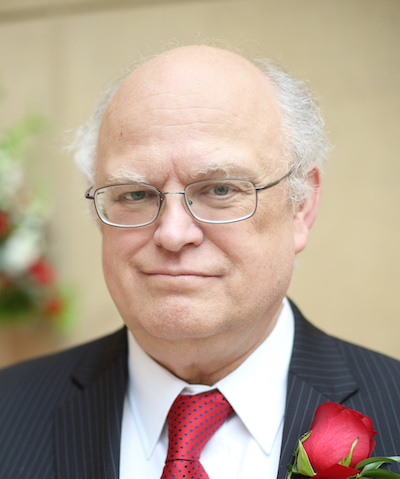
Dr. Thomas Sterling
Professor of Informatics & Computing, School of Informatics & Computing, Indiana University
Chief Scientist & Executive Associate Director, Center for Research in Extreme Scale Technologies (CREST)
About the speaker
Dr. Thomas Sterling holds the position of Professor of Informatics and Computing at the Indiana University (IU) School of Informatics and Computing as well as serves as Chief Scientist and Executive Associate Director of the Center for Research in Extreme Scale Technologies (CREST). Since receiving his Ph.D from MIT in 1984 as a Hertz Fellow Dr. Sterling has engaged in applied research in fields associated with parallel computing system structures, semantics, and operation in industry, government labs, and academia. Dr. Sterling is best known as the “father of Beowulf” for his pioneering research in commodity/Linux cluster computing. He was awarded the Gordon Bell Prize in 1997 with his collaborators for this work. He was the PI of the HTMT Project sponsored by NSF, DARPA, NSA, and NASA to explore advanced technologies and their implication for high-end system architectures. Other research projects included the DARPA DIVA PIM architecture project with USC-ISI, the Cray Cascade Petaflops architecture project sponsored by the DARPA HPCS Program, and the Gilgamesh high-density computing project at NASA JPL. Thomas Sterling is currently engaged in research associated with the innovative ParalleX execution model for extreme scale computing to establish the foundation principles to guide the co-design for the development of future generation Exascale computing systems by the end of this decade. ParalleX is currently the conceptual centerpiece of the XPRESS project as part of the DOE X-stack program and has been demonstrated in proof-of-concept in the HPX runtime system software. Dr. Sterling is the co-author of six books and holds six patents. He was the recipient of the 2013 Vanguard Award.
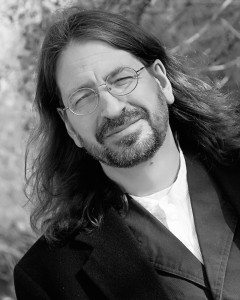
Prof. Rick Stevens
Professor of Computer Science, University of Chicago
Senior Fellow, Computation Institute
Associate Laboratory Director, Computing, Environment & Life Sciences, Argonne National Laboratory
About the speaker
Rick L. Stevens is the Associate Laboratory Director of Computing, Environment, and Life Sciences at Argonne National Laboratory, which is the U.S. Department of Energy’s (DOE’s) oldest lab for science and energy research. He heads Argonne’s computational genomics program and co-leads the DOE laboratories planning effort for exascale computing research. He is a professor of computer science at the University of Chicago (UChicago) and is involved in several interdisciplinary studies at the Argonne/UChicago Computation Institute and at the Argonne/UChicago Institute for Genomics and Systems Biology, where he holds senior fellow appointments.
Stevens is co-principal investigator, chief technical officer, and chief architect of the DOE Systems Biology Knowledgebase project, an emerging software and data environment designed to enable researchers to collaboratively generate, test and share new hypotheses about gene and protein functions, perform large-scale analyses on a scalable computing infrastructure, and model interactions in microbes, plants, and their communities. Stevens is also co-principle investigator for the NIAID Bioinformatics Resource Center program where his group has developed computational tools and genomics databases to support infectious disease research.
Stevens is interested in the development of innovative tools and techniques that enable computational scientists to solve important large-scale problems on advanced computers. His research focuses on two principal areas: high-performance computer architectures, and computational problems in the life sciences. In addition to his research work, Stevens teaches courses on computer architecture, collaboration technology, parallel computing, and computational science. He serves on many national and international advisory committees and still finds time to occasionally write code and play with his 3D printer.
